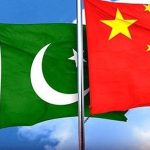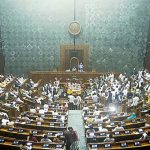The IMF’s mission visit to Islamabad, initially planned for this week, has been delayed due to security concerns stemming from growing regional tensions
Pakistan has officially received the second tranche of its Extended Fund Facility (EFF) loan from the International Monetary Fund (IMF), providing a critical boost to its foreign exchange reserves ahead of the country’s crucial fiscal budget discussions. However, the IMF’s mission visit to Islamabad, initially planned for this week, has been delayed due to security concerns stemming from growing regional tensions—particularly with neighbouring India. Instead, talks have begun virtually and are expected to continue in hybrid format over the coming days.
The IMF has transferred Special Drawing Rights (SDRs) amounting to Rs 760 million—approximately $1.023 billion—into the State Bank of Pakistan’s reserves. This is part of the IMF’s ongoing support programme under the EFF, aimed at stabilising Pakistan’s economy amid persistent macroeconomic vulnerabilities. The disbursement was approved during the IMF Executive Board’s meeting on 9 May, which also cleared an additional $1.4 billion in funding under the Resilience and Sustainability Facility (RSF) to support Pakistan’s climate resilience agenda.
Virtual discussions on Pakistan’s 2025–26 fiscal budget commenced on Wednesday and are expected to continue for at least three days. Sources say the talks hold particular significance, as this is the first time the new IMF Mission Chief to Pakistan, Iva Petrova, is engaging directly with Pakistani authorities. Petrova, who succeeds Nathan Porter—known for his rigorous oversight of Islamabad’s economic policies—is expected to lead the budget-related talks with assistance from her predecessor during the transition phase.
Officials confirmed that the IMF mission may still travel to Islamabad later this week, should the security situation permit. “We are adjusting our schedule, but the shift to virtual engagement will not compromise the substance of the discussions or the timeline of the programme,” an official noted.
The IMF discussions are crucial as Islamabad prepares to present its federal budget for fiscal year 2025–26 on 2 June. Finance Minister Muhammad Aurangzeb is set to unveil his second budget since assuming office. The forthcoming budget will need to align closely with targets agreed upon with the IMF—particularly regarding fiscal discipline and structural reforms.
Economic experts anticipate a challenging fiscal outlook. Pakistan is reportedly targeting a primary budget surplus of 1.6% of GDP, which translates to raising an additional Rs 2 trillion above non-interest expenses. The Federal Board of Revenue (FBR) is being tasked with meeting a tax collection target of at least 11% of GDP—an ambitious target given its recent underperformance in several areas, including enforcement measures, compliance risk management, and digital tracking initiatives.
“The overall budget is expected to be around Rs 18 trillion, with the defence allocation likely to see an upward revision,” said economist Shahbaz Rana. “The fiscal deficit, after factoring in provincial cash surpluses, is projected at 5.1% of GDP or roughly Rs 6.7 trillion.”
Despite these high fiscal ambitions, the government has expressed confidence in its compliance with IMF performance benchmarks. “We have met targets on the primary budget surplus, net revenue, and provincial cash surpluses,” a senior government source claimed. “This track record should ease the path for the budget negotiations.”
However, there remain significant areas of concern. The FBR’s shortcomings have raised alarms within IMF circles. Its repeated failure to operationalise compliance schemes and digital tracking systems has created credibility gaps that Islamabad must urgently address.

India’s abstention from IMF vote
Geopolitical tensions continue to cast a shadow over economic diplomacy. During the recent IMF Executive Board meeting, India abstained from voting on the loan package for Pakistan—despite registering strong objections regarding Islamabad’s history of IMF reliance and alleged misuse of funds. Citing concerns over Pakistan’s poor economic track record and military control over key financial decisions, Indian representatives warned against what they described as “state-sponsored misuse” of international assistance.
India’s abstention, rather than a direct “No” vote, was seen as a calculated diplomatic move within IMF procedural limits. Indian officials highlighted that Pakistan has been the recipient of IMF assistance in 28 of the last 35 years, including four separate programmes in just the past five years. India contended that Islamabad had failed to translate this repeated support into sustainable reforms, while its military continued to dominate economic decision-making in ways that hinder transparency and civilian oversight.
India also raised alarms over the potential for IMF funds to indirectly support activities linked to terrorism, accusing Pakistan of using international aid to shore up military expenditure while failing to rein in cross-border militancy. “Such precedents risk undermining the credibility of global financial institutions,” an Indian diplomat said during the meeting.
These concerns, while diplomatically framed, reflect growing unease in New Delhi and other Western capitals over the IMF’s continued support to Pakistan without significant institutional reform.
Back in Islamabad, the government remains focused on meeting IMF benchmarks and finalising a budget that balances fiscal prudence with political realities. Officials are banking on the recent disbursement of IMF funds and a favourable review to help unlock other avenues of foreign financing and boost investor confidence.
The next few weeks will be pivotal not only for Pakistan’s economic future but also for its relationship with international financial institutions. The outcome of the ongoing virtual and in-person budget discussions could determine the contours of Pakistan’s long-term fiscal strategy, debt sustainability, and access to further external financing amid a fragile geopolitical environment.














